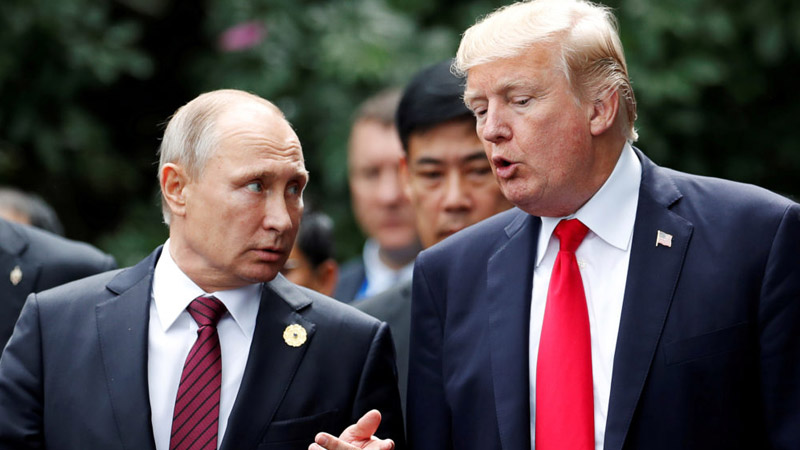The United States is once again facing the prospect of Russian interference in its presidential election, with the Kremlin expected to support Donald Trump’s candidacy through propaganda efforts, according to a report by NBC.
An unnamed intelligence official informed NBC that Russia is likely to launch a pro-Trump propaganda campaign aimed at diverting votes away from the Democratic nominee. Previous interference in the 2016 and 2020 elections, which U.S. intelligence attributed to Russian President Vladimir Putin, aimed to undermine the Democratic candidates and bolster Trump’s chances.
Earlier this month, prior to Joe Biden’s withdrawal from the race, U.S. intelligence indicated that “Russia remained the primary foreign threat to U.S. elections and that its candidate preferences were the same as in 2020,” as reported by NBC.
Although Biden has since been replaced by Kamala Harris as the Democratic nominee, the intelligence official told NBC that Russia’s motivations have not shifted significantly.
“We view changes to influence themes as more likely than changes to larger strategies or preferences,” the official explained to NBC, adding, “Russia’s core interest in this election is opposing candidates who want to offer further aid to Kyiv, and we expect Russia’s focus will remain on that.”
Unlike Harris, Trump has not committed to providing aid to Ukraine if elected. His running mate, Sen. J.D. Vance, expressed a dismissive attitude toward Ukraine in a 2022 podcast, saying, “I don’t really care what happens to Ukraine one way or another.”
The official further elaborated that Russia’s election interference strategy is expected to focus on discrediting Harris and amplifying narratives that align with Trump’s stance on foreign policy, particularly regarding Ukraine. This strategic choice is driven by Russia’s opposition to U.S. support for Kyiv, a policy stance that Harris is likely to continue if elected.
The ongoing efforts to counteract foreign interference in U.S. elections highlight the challenges faced by American intelligence and cybersecurity agencies. As the 2024 election approaches, the focus will remain on protecting the electoral process from external manipulation.
Russia’s anticipated interference in the upcoming election underscores the geopolitical stakes and the persistent threat of foreign influence in American politics. The intelligence community’s vigilance and proactive measures will be crucial in safeguarding the integrity of the election and ensuring that the democratic process is not compromised by external actors.

